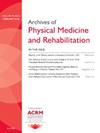专业护理和家庭医疗政策:医院临床医生入门手册》:PAC 政策入门。
IF 3.6
2区 医学
Q1 REHABILITATION
Archives of physical medicine and rehabilitation
Pub Date : 2025-02-01
DOI:10.1016/j.apmr.2024.08.017
引用次数: 0
摘要
本文探讨了医院临床医生在协调和推荐患者接受急性期后护理时所面临的日益严峻的挑战,重点关注与获得最常见的急性期后服务相关的问题:专业护理机构(SNFs)和家庭保健机构(HHAs)。在协调出院事宜时,医院临床医生对这些机构提供的护理服务知之甚少。急症护理医院、专业护理机构和家庭保健机构之间病人护理连续性的中断加剧了这种知识差距。为了应对这些挑战,医院临床医生必须了解最近的联邦政策对 SNF 和 HHA 护理服务的影响。本文概述了联邦医疗保险和医疗补助服务中心(CMS)近期影响 SNF 和 HHA 的政策和计划,包括:(1)付费服务补偿改革(即患者驱动支付模式 [PDPM] 和患者驱动分组模式 [PDGM]);(2)捆绑支付计划;(3)责任医疗组织;以及(4)医疗保险优势计划。总之,本文旨在通过提供近期政策变化如何影响患者护理的相关信息,帮助医院临床医生了解不断变化的急性期后护理服务。本文章由计算机程序翻译,如有差异,请以英文原文为准。
Skilled Nursing and Home Health Policy: A Primer for the Hospital Clinician
This paper addresses the increasing challenges faced by hospital clinicians in coordinating and recommending postacute care for patients, focusing on issues related to access to the most common postacute services: skilled nursing facilities (SNFs) and home health agencies (HHAs). In coordinating discharges, hospital clinicians have minimal information on care delivery in these settings. This knowledge gap is exacerbated by the disrupted continuum of patient care between acute care hospitals, SNFs, and HHAs. To address these challenges, hospital clinicians must understand how recent federal policies have impacted SNF and HHA care provision. The paper provides an overview of recent Centers for Medicare and Medicaid Services (CMS) policies and programs affecting SNFs and HHAs, including: (1) fee-for-service reimbursement reform (ie, Patient Driven Payment Model [PDPM] and the Patient Driven Groupings Model [PDGM]); (2) bundled payment programs; (3) accountable care organizations; (4) Medicare Advantage plans. Overall, this paper aims to help hospital clinicians stay informed about the evolving landscape of postacute care delivery by providing relevant information on how recent policy changes have impacted patient care.
求助全文
通过发布文献求助,成功后即可免费获取论文全文。
去求助
来源期刊
CiteScore
6.20
自引率
4.70%
发文量
495
审稿时长
38 days
期刊介绍:
The Archives of Physical Medicine and Rehabilitation publishes original, peer-reviewed research and clinical reports on important trends and developments in physical medicine and rehabilitation and related fields. This international journal brings researchers and clinicians authoritative information on the therapeutic utilization of physical, behavioral and pharmaceutical agents in providing comprehensive care for individuals with chronic illness and disabilities.
Archives began publication in 1920, publishes monthly, and is the official journal of the American Congress of Rehabilitation Medicine. Its papers are cited more often than any other rehabilitation journal.

 求助内容:
求助内容: 应助结果提醒方式:
应助结果提醒方式:


